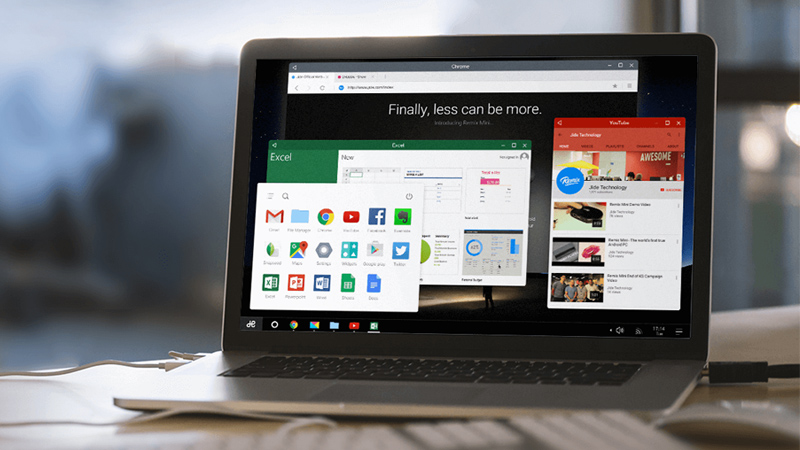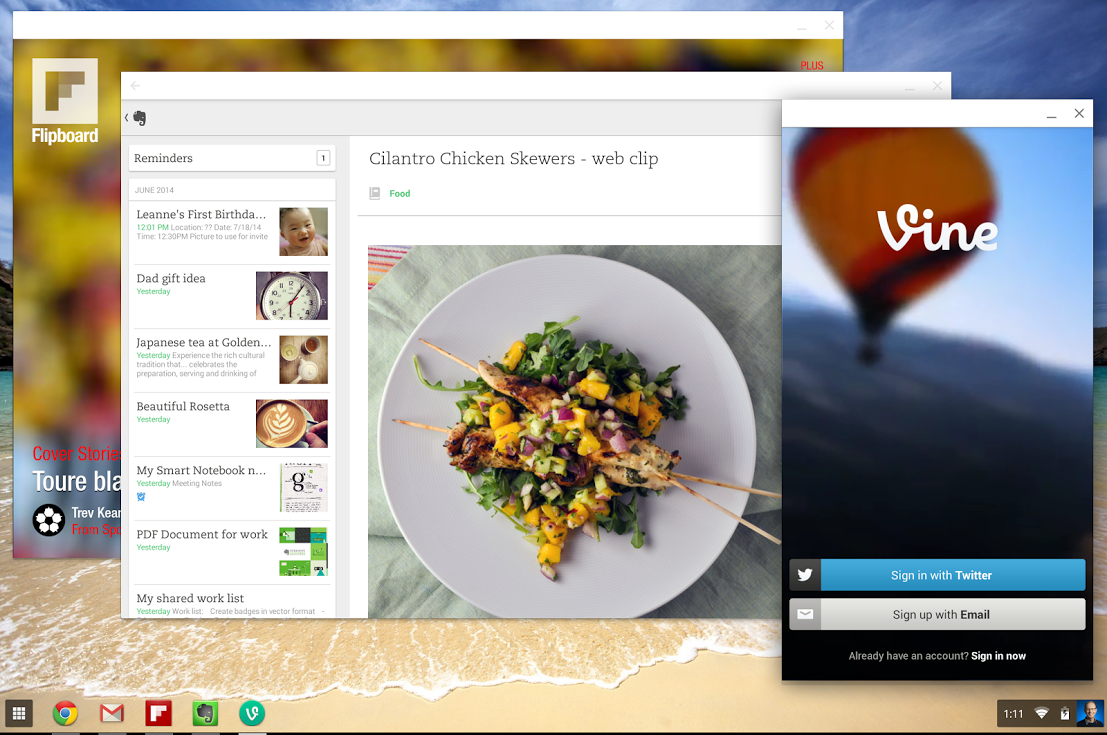Jide Discontinues Remix OS, Its Once-Promising Desktop Version Of Android
Jide Technology announced that Remix OS, the once-promising Android-based desktop operating system, will be discontinued for the consumer space.
Android For PC
Jide wasn’t the only company to try and bring Android to PCs, but it was arguably the one to make the best case for Android on a desktop computer or notebook. Its potential grew mainly from the platform’s PC-centric design approach, whereas others tried (and failed) to bring Android to the desktop by embracing a more tablet-optimized version of Android.
One major advantage of Remix OS over its main competitor, Chrome OS, was that Remix OS promised to work on a larger number of devices, especially after the merger with the Android x86 project. In comparison, Chrome OS officially only works on the devices with which it’s being sold. Unofficially, there have been some attempts to port Chromium OS to older hardware, but they’re not much more popular than Remix OS.
Although Remix OS promised to work on more devices and to allow users to install it themselves, full support was not guaranteed, because it was up to the development team and the Android x86 community at large to ensure specific devices were supported by Remix OS.
Chrome OS Steals The Thunder
Remix OS faced multiple challenges, the first being the fact that Android wasn’t originally designed to be a PC operating system. Although Jide may have made the OS look like a desktop platform, it still needed underlying support for desktop applications.
Another related issue was the fact that Jide was a small company that had to develop a popular platform on its own without Google’s support and promotion. Even Google struggled for years to convince developers to modify phone apps for tablets. Therefore, it was somewhat expected that it would be even more challenging for a Kickstarter-born startup to achieve critical mass with developer support.
Google also met the same resistance from developers when it first wanted to bring Android apps to Chrome OS in way that required developers to significantly modify their code. That strategy didn’t work well, which is why Google eventually adopted the approach of putting the whole Android framework inside a container that can fully run on top of Chrome OS. This is what allowed all Android apps to work on Chrome OS without any changes from developers.
Get Tom's Hardware's best news and in-depth reviews, straight to your inbox.
Chrome OS gaining complete support for Android apps was also what looked like the final nail in Remix OS’ coffin. Jide may have struggled to create partnerships with major companies, but Google has had partnerships with large PC makers, such as Acer and Samsung, from day one of Chrome OS’ launch. Chrome OS gaining support for Android apps made the platform even more popular with both customers and OEMs, and it also gave them both less of a reason to try out Remix OS.
Focusing On The Enterprise Market
Due to the major challenges it faced and shrinking funds, Jide seems to have decided to discontinue Remix OS for the consumer market, and instead focus on the more profitable enterprise market.
The company also said that it will refund all of the Remix IO and Remix IO+ set-top box Kickstarter backers over the next 10 days. Any purchases made via the company’s online store that have remained unfulfilled will also be refunded.
Jide Technology said the following in a recent post:
We’d like to take this moment to thank our incredible community, who’ve joined us on this journey in the last three years to help us build Remix OS. We very much believe that the future of computing is with Android and we're excited for the role Jide will play in this amazing ecosystem.
Lucian Armasu is a Contributing Writer for Tom's Hardware US. He covers software news and the issues surrounding privacy and security.
-
bloodroses I had tried Remix-OS on my netbook. Honestly, I was never really impressed. Unless you have a touch screen, it felt like a crippled android device. Even with the touch screen (tried on my 2 in 1 laptop), it felt like a crippled tablet. I was hoping that eventually it would grow into more.Reply -
extremepenguin Tried it and went instead with Neverwares release of ChromeOS it just worked better.Reply -
gangrel Pretty much the same story here. Nice to have a larger display, but tablet and phone apps didn't always work great without touch. And resolution was nothing special. Did have an IO+ through KS, too...worth the low risk. Well, I'll have some mad money in a couple weeks...Reply -
velocityg4 That's too bad. There will probably be another group that takes over and twenty competing groups.Reply
I often wonder how all the desktop Linux distros survive. Considering how miniscule the user base is for many of them and that they are free.

